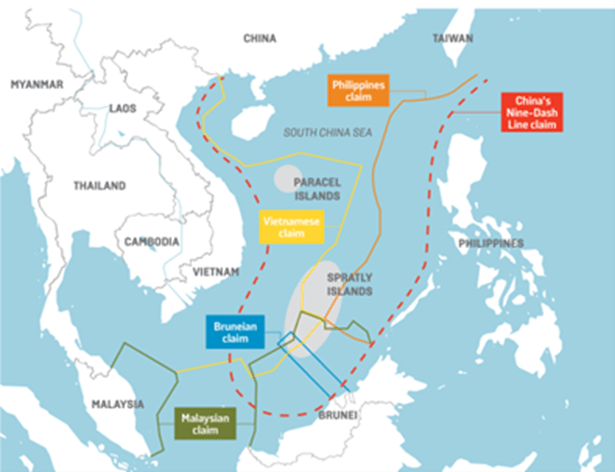The Maritime Traffic Safety Law of the People’s Republic of China (MTSL) is the primary law regulating maritime traffic safety in the sea areas within the jurisdiction of the People’s Republic of China. The recently revised version came into effect from 1 September 2021, with significant changes and new requirements being placed on shipowners. Below we explore what these amendments mean and possible implications.
What has changed?
In short, the MTSL, which monitors navigating, berthing, operations and other activities relevant to maritime traffic safety, now includes new legal systems, increased penalties for breaches, and requirements for shipowners to report certain types of foreign vessels.
So what does this mean?
A lot more paperwork! Foreign vessels, both military and commercial, will be required to submit to Chinese supervision in “Chinese territorial waters”, and vessels that “endanger the maritime traffic safety of China” will be required to report their name, call sign, current position, next port of call and estimated time of arrival. Details of shipborne dangerous goods and cargo deadweight will also be required.
What kind of vessels will be affected?
The new law applies to submersibles, nuclear vessels, ships carrying radioactive materials, bulk oil, chemicals, liquefied gas, and other toxic or harmful substances. Vessels whose length, width, and height are close to the limits prescribed in the navigation conditions and the catch all, "vessels that may endanger China's maritime traffic safety".
Where does responsibility now lie?
The revised law is to ensure safety of vessels, crew, traffic, maritime property, protect the marine ecology and environment, as well as many other different aspects that the law will align itself to and ensure the safety of. Although most of these are covered by ISM, maritime laws, port and state authorities and various maritime standards, the new law implies that the State is taking on all these roles. The question posed therefore - is the onus of safety on the State, making any accident, as a result, their responsibility?
For example, Article 21: “The State shall establish and improve the vessel positioning, navigation, timing, communication, remote monitoring and other maritime traffic support service systems to provide information services for vessels and offshore installations.”
Article 23: “The transport department under the State Council shall take necessary measures to ensure the rational layout and effective coverage of radio communication facilities for maritime traffic safety, plan the construction layout and sites of maritime radio stations in its system (industry), and verify and issue standard radio station licenses and radio station identification codes of vessels. The transport department under the State Council shall organize the construction of the maritime radio monitoring system in its system (industry) and monitor its radio signals, and maintain the order of maritime radio waves in conjunction with the radio regulatory authority of the state.
The law is full of such undertakings, as well as wording focused on the aim of unifying and managing the safety systems for vessels calling into ‘Chinese territorial waters’. Again, posing another question - does that mean China will now call the shots on maritime standards?
What comes under ‘Chinese territorial waters’?
Therein lies the conflict. The South China sea is heavily disputed for control. China claims most it as its sovereign territory under the Nine-Dash line, though this is heavily disputed by the neighbouring countries supported by the US, who have strategic interest in the region.

SOURCE: CENTER FOR STRATEGIC AND INTERNATIONAL STUDIES, PERMANENT COURT OF ARBITRATION
How does this compare with other law governing territorial waters?
United Nations Convention on the Law of the Sea (UNCLOS) defines territorial sea as a belt of coastal waters extending at most 12 nautical miles (22 km; 14 miles) from the baseline (usually the mean low-water mark) of a coastal state. The territorial sea is regarded as the sovereign territory of the State and accordingly, the state has the right to implement territorial rights up to 12 nautical miles into the sea. The UNCLOS also states that all vessels have the right of “innocent passage” through this region.
The new law contradicts this and China has not (yet) given clarity to what they define as “Chinese territorial waters” or how they will enforce the new law in areas that currently conflict with UNCLOS.
For merchant/commercial vessels, the best course of action would be to err on the side of caution and send the required information five days prior to entering South China sea. Especially if the vessel is calling at a Chinese port.
Will the new law impact insurance requirements?
Hopefully not. Insurers and maritime conventions will be looking to produce best practice guidance and P&I clubs are issuing bulletins and advice for members.
Initial drafts of this new law were released in September last year, therefore many shipowners trading in the region were aware and prepared. The law invites enhanced safety and management of vessels, which is largely covered by managers and shipowners’ own best practice. However, ambiguities and vagueness in respect of maintaining safety standards according to those set out in the new law may take time and experience to correct. In the meantime, shipowners should review any of their policies which cover fines.
How can Miller help?
For vessels within designated territorial waters as defined by UNCLOS, the situation is clear that shipowners entering those waters will be required to submit to Chinese supervision. The major uncertainty for shipowners and charterers at this stage surrounds detention following a breach of the new legislation within disputed waters not recognised by non-Chinese governments and that lie beyond the UNCLOS defined territorial waters.
Miller’s Marine team has worked with the insurance market to provide a solution to help alleviate this uncertainty. We can now offer coverage that would respond for vessels transiting outside Chinese UNCLOS territorial waters that would provide indemnity for otherwise unrecoverable loss of hire following detention/detainment. The coverage negotiated with insurers is primary with nil deductible and so would respond from day one following detention or detainment.
We would be delighted to discuss the product in more detail at owner’s or charterer’s request. Contact any of our specialists below.


